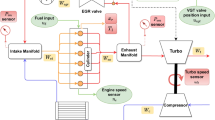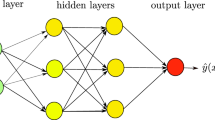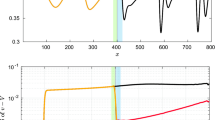Abstract
In this paper, we propose a novel methodology of numerical approximation to analyze flow of a nonlinear embedded hybrid system. For proving that all trajectories of a hybrid system do not enter an unsafe region, many classic numerical approaches such as Euler, Runge–Kutta methods for ordinary differential equations (ODEs) are applied, whereas, there exist several defects, including so-called spurious solutions and ghost fixed points. Moreover, to approximate the proper solution as much as possible, step size selection becomes especially important. In comparison, integrating group preserving scheme (GPS) which calculates true circumstance getting rid of spurious solutions and ghost fixed points, with neural network model which reduces numerical errors, deep GPS (DGPS) eliminates aforementioned adverse factors and gains better numerical approximation using a large time step size. The experimental results show that the proposed method makes safety verification for an embedded hybrid system well.












Similar content being viewed by others
Data availability
The authors confirm that the data supporting the findings of this study are available within the article.
References
Antsaklis, P.J.: Special issue on hybrid systems: theory and applications—a brief introduction to the theory and applications of hybrid systems. Proc. IEEE 88, 879–887 (2000)
Chutinan, A.: Hybrid system verification using discrete model approximations. PhD Thesis, Carnegie Mellon University (1999)
Asarin, E., Bournez, O., Dang, T., Maler, O., Pnueli, A.: Effective synthesis of switching controllers for linear systems. Proc. IEEE 88(7), 1011–1025 (2000). https://doi.org/10.1109/5.871306
Girard, A.: Reachability of uncertain linear systems using zonotopes. In: Morari, M., Thiele, L. (eds.) Hybrid Systems: Computation and Control, vol. 3414, pp. 291–305. Springer, Berlin (2005)
Kurzhanskiy, A.A., Varaiya, P.: Ellipsoidal techniques for reachability analysis of discrete-time linear systems. IEEE Trans. Autom. Control 52(1), 26–38 (2007). https://doi.org/10.1109/tac.2006.887900
Le Guernic, C., Girard, A.: Reachability analysis of hybrid systems using support functions. In: Computer Aided Verification, pp. 540–554. Springer, Berlin (2009)
Henzinger, T., Ho, P.-H., Wong-Toi, H.: HyTech: a model checker for hybrid systems. In: Computer Aided Verification, vol. 1254 (1998). https://doi.org/10.1007/s100090050008
Asarin, E., Dang, T., Maler, O., Bournez, O.: Approximate reachability analysis of piecewise linear dynamical systems. In: Proceedings of HSCC 00: Hybrid Systems-Computation and Control, vol 1790, pp. 20–31 (2000)
Chutinan, A., Krogh, B.: Verification of polyhedral-invariant hybrid automata using polygonal flow pipe approximations. In: International Workshop on Hybrid Systems: Computation and Control, pp. 76–90 (2000) https://doi.org/10.1007/3-540-48983-5_10
Frehse, G.: PHAVer: algorithmic verification of hybrid systems past HyTech. Int. J. Softw. Tools Technol. Transf. 10, 263–279 (2008). https://doi.org/10.1007/s10009-007-0062-x
Frehse, G., Le Guernic, C., Donzé, A., Cotton, S., Ray, R., Lebeltel, O., Ripado, R., Girard, A., Dang, T., Maler, O.: SpaceEx: scalable verification of hybrid systems. In: Computer Aided Verification, pp. 379–395. Springer, Berlin (2011)
Henzinger, T.A., Ho, P.H., Wong-Toi, H.: Algorithmic analysis of nonlinear hybrid systems. IEEE Trans. Autom. Control 43(4), 540–554 (1998). https://doi.org/10.1109/9.664156
Raissi, M., Perdikaris, P., Karniadakis, G.: Multistep Neural Networks for Data-Driven Discovery of Nonlinear Dynamical Systems (2018)
Qin, T., Wu, K., Xiu, D.: Data driven governing equations approximation using deep neural networks. J. Comput. Phys. 395, 620–635 (2019)
Rudy, S., Kutz, J., Brunton, S.: Deep learning of dynamics and signal-noise decomposition with time-stepping constraints. J. Comput. Phys. 396, 483–506 (2019)
Regazzoni, F., Dede, L., Quarteroni, A.: Machine learning for fast and reliable solution of time-dependent differential equations. J. Comput. Phys. 397, 108852 (2019)
Shen, X., Cheng, X., Liang, K.: Deep Euler method: solving ODEs by approximating the local truncation error of the Euler method. https://arxiv.org/abs/2003.09573v1 (2020)
Liu, C.-S.: Cone of non-linear dynamical system and group preserving schemes. Int. J. Nonlinear Mech. 36, 1047–1068 (2001)
Cuijpers, P.J.L., Reniers, M.A.: Hybrid process algebra. J. Log. Algebr. Program. 62, 191–245 (2005). https://doi.org/10.1016/j.jlap.2004.02.001
Henzinger, T.A.: The theory of hybrid automata, In: Inan, M.K., Kurshan, R.P. (eds) Verification of Digital and Hybrid Systems. NATO ASI Series (Series F: Computer and Systems Sciences), vol 170, pp. 265–292 (2000). https://doi.org/10.1007/978-3-642-59615-5_13
Platzer, A.: Differential dynamic logic for hybrid systems. J. Autom. Reason. 41, 143–189 (2008). https://doi.org/10.1007/s10817-008-9103-8
van Beek, D.A., Reniers, M.A., Schiffelers, R.R.H., Rooda, J.E.: Concrete syntax and semantics of the compositional interchange format for hybrid systems. In: 17th IFAC World Congress (2008)
Davoren, J., Nerode, A.: Logics for hybrid systems. Proc. IEEE 88, 985–1010 (2000)
Chen, B., Solis, F.: Discretizations of nonlinear differential equations using explicit finite order methods. J. Comput. Appl. Math 90(2), 171–183 (1998)
Poli, M., Massaroli, S., Yamashita, A., Asama, H., Park, J.: Hypersolvers: Toward Fast Continuous-Depth Models. https://arxiv.org/abs/2007.09601v2 (2020)
Sotoudeh, M., Thakur, A.V.: Abstract neural networks. In: 27th Static Analysis Symposium (SAS) (2020)
Shampine, L.F.: Error estimation and control for ODEs. J. Sci. Comput. 25, 3–16 (2005). https://doi.org/10.1007/BF02728979
Chen, X.: Reachability Analysis of Non-linear Hybrid Systems Using Taylor Models. Technical Report. RWTH Aachen (2015)
Prajna, S., Jadbabaie, A., Pappas, G.J.: A framework for worst-case and stochastic safety verification using barrier certificates. IEEE Trans. Autom. Control 52(8), 1415–1428 (2007). https://doi.org/10.1109/tac.2007.902736
Funding
This research is supported by the National Natural Science Foundation of China under Grant No. 61772006, the Science and Technology Major Project of Guangxi under Grant No. AA17204096, the Key Research and Development Project of Guangxi under Grant No. AB17129012, and the Special Fund for Bagui Scholars of Guangxi.
Author information
Authors and Affiliations
Contributions
ZX developed the theoretical formalism, performed the analytic calculations and performed the numerical simulations. Both ZX and JW authors contributed to the final version of the manuscript. JW supervised the project.
Corresponding author
Ethics declarations
Conflict of interest
The authors declare that they have no conflict of interest.
Ethical approval
Hereby, we consciously assure that for the manuscript “Safety Verification of Embedded Hybrid Systems Using Deep Group Preserving Scheme” the following is fulfilled:
(1) This material is the authors’ own original work, which has not been previously published elsewhere.
(2) The paper is not currently being considered for publication elsewhere.
(3) The paper reflects the authors’ own research and analysis in a truthful and complete manner.
(4) All sources used are properly disclosed (correct citation). Literally copying of text must be indicated as such by using quotation marks and giving proper reference.
(5) All authors have been personally and actively involved in substantial work leading to the paper, and will take public responsibility for its content.
Additional information
Publisher's Note
Springer Nature remains neutral with regard to jurisdictional claims in published maps and institutional affiliations.
Rights and permissions
About this article
Cite this article
Xu, Z., Wu, J. Computing flow pipe of embedded hybrid systems using deep group preserving scheme. Cluster Comput 25, 1207–1220 (2022). https://doi.org/10.1007/s10586-021-03495-x
Received:
Revised:
Accepted:
Published:
Issue Date:
DOI: https://doi.org/10.1007/s10586-021-03495-x




